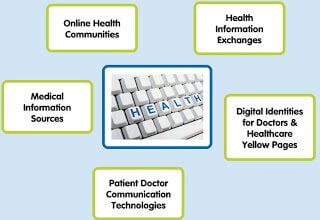Healthcare is a busy and demanding industry that requires long hours of work. The work in healthcare has its rewards. However, many healthcare workers have a difficult time living on entry-level salaries. Understand your real earning potential and plot a career path strategically. These can mean a lot in the long run. Read below to find out how simple math can give you power over the ability of your income rate as a person working in healthcare.
The Current Health Care Workers’ Incomes State of Affairs
For healthcare practitioners and technical occupations, the median annual wage for May 202 was $77,760. It was more than the average wage for all jobs which stood at $46,310. However, the median annual wage for healthcare support occupations was significantly lower, at $33,600. This is as revealed by the U.S. Bureau of Labor Statistics. This difference underscores the income challenges encountered by entry-level healthcare workers, including:
- Medical assistants
- Home health aides
- Nursing assistants
These workers encounter challenges such as wage gaps and limited income mobility for various reasons. Health workers are often segregated by structural inequalities associated with gender, race, and immigrant status. Many of them settle for jobs that pay much less. For instance, a 2020 poll revealed that more than four-fifths of nursing assistants were females and less than half of physicians. The pandemic also gave more workloads and emotional burden from the loss of patients. Frontline workers faced a high risk of infection. All this affects motivation, health, and career growth.
However, with appropriate financial skills, one can navigate the imperfect system and assist healthcare professionals. They can have more control over their incomes and see growth opportunities. It may be a difficult task but it is possible, especially with the help of an hourly salary calculator. Determination and hard work are just raw ingredients that are perfected by data and information. This calculator will turn them into information that shows how much your efforts are worth.
The Simple Calculation: A Tool for Financial Empowerment
The core principle here is to track your true hourly wage, including unpaid hours worked. This helps assess your real income in comparison to industry standards. It aids in identifying opportunities for better compensation. Follow these steps:
- Step 1
Document your annual salary or total wages earned and all hours worked, including overtime hours. Be sure to account for unpaid overtime which is common in healthcare.
- Step 2
Divide your annual earnings by total hours worked in a year to calculate your real hourly wage.
- Step 3
Research credible sources. Determine the average or median hourly wage for your role, experience level, and geographic region.
- Step 4
Compare your real hourly wage to the typical industry benchmarks for your job profile. This will reveal whether you are being adequately compensated.
While simple, applying this hourly wage calculation will arm you with objective data. It can be presented to employers when negotiating raises or considering new job opportunities. Tracking your income momentum over time can also motivate you to keep advocating for fair compensation.
Strategies to Leverage the Calculation for Income Boost
Using insights gained from hourly wage calculations, you can strategically enhance your income as a healthcare worker.
- Evaluate job openings and specializations
If your real wage is lower than industry benchmarks, explore openings with higher hourly rates. You can also consider better work-life balance. Think of specializing in skills like wound care, social work, or physical therapy assisting which can boost income.
- Negotiate a raise
Use your detailed hourly wage data and industry comparisons to build a compelling case for fairer compensation. Outline your unique contributions, achievements, reliability, and performance metrics for extra leverage. Time this during annual reviews.
- Research overtime policies
Look into overtime pay eligibility. Advocate for hourly overtime rates rather than flat bonuses if possible.
- Pick up extra shifts prudently
Temporarily covering extra shifts or overtime can provide an immediate income boost but avoid burnout. Track wages per extra hour worked.
- Consider certification programs
Obtaining certification in a specialized medical skill or administrative technology. It may open doors to better compensation. Many accredited programs offer flexible, online, or part-time options.
- Consult career mentors
Those in leadership roles can advise you on the most lucrative roles and guide you on the path to quickly qualify. Their connections could also help fast-track applications.
Use some strategic moves guided by calculations. Entry-level workers can gain momentum in their careers and income.
Navigating Systemic Barriers to Higher Income
While personal effort is important, it is not enough to overcome systemic barriers to advancement and fair wages. The 27% turnover rate among nursing assistants points to widespread dissatisfaction. It is because of such reasons as poor payment, constrained movement, and insufficient benefits.
Organizations such as the AFSCME promote policy reforms. These include wage increases and development programs. Workers will also use collective bargaining and union contracts to obtain higher wages and other benefits.
Health care workers from marginalized sections are guided by grassroots professional associations. For instance, the National Association of Hispanic Nurses provides mentorships and scholarships. They also provide leadership training to empower Latina nurses.
Additional Resources and Support Systems
To complement individual strategies, healthcare workers can access valuable training, tools, and support:
- Financial planning resources
Provide advice on budgeting, debt reduction and retirement planning.
- Online education platforms
Provide accredited courses and certifications. Some offer financial aid.
- Professional associations
Support workers’ rights and career development programs.
- Mentorships and networking groups
Make connections with colleagues and pick up tips on progressing further.
- Employee Assistance Programs (EAPs)
Provide access to mental health counseling, legal and financial advice. Make sure it is covered by your employer.
By leveraging these resources, you enhance your potential for income growth and career success.
FAQs
In a system that naturally has its wages limited, how can entry-level healthcare workers increase their income?
- Develop specialized skills
- Take on more responsibilities
- Use tools like the simple calculation
- Advocate for fair compensation and benefits
Building a professional network also opens doors. With perseverance, income growth is achievable.
What are some common mistakes health care workers make when trying to use financial calculations for income growth?
- Not tracking unpaid hours worked
- Making comparisons without considering regional variations,
- Underestimating the value of their skills and contributions.
- Maintaining detailed hourly wage data
- Benchmarking accurately is key.
How can healthcare workers balance the need for immediate income with long-term financial goals?
Create a budget identifying expenses that can be reduced. Build an emergency fund, enroll in a retirement savings plan, and invest conservatively. Upskilling to access better roles can provide a dual income boost.
Conclusion
While structural challenges exist, health care workers have more control over their income than they often realize. Consistently tracking your hourly wage, benchmarking against industry standards, strategically boosting your income, and utilizing available resources can empower you to gain momentum in your career. Financial literacy is invaluable in navigating the modern economy. With the right approach, your goals are within reach.










